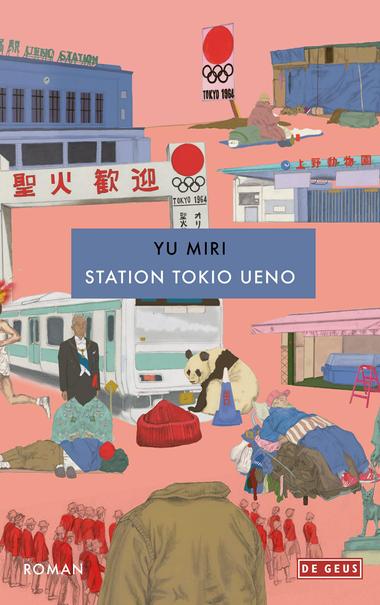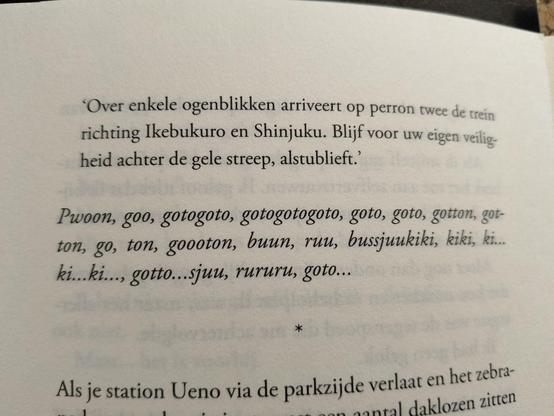📘 "Station Tokio Ueno" by Yū Miri, translated from Japanese into Dutch by Geert van Bremen
Available in English as "Tokyo Ueno Station".
This is quite a difficult but certainly interesting novel about a lot -more than can be easily summarized. Poverty, homelessness, migrant workers, Japanese history and culture, mourning, ageing, cultural differences, regions with a difference in prosperity, recovery from disasters and even more.
I think you really need to be in the mood to read it and lock in, because (at least for me) it is quite challenging. It's somewhat disjointed and the past and presence sometimes almost seem to blur. You'd best discover it for yourself.
Some of the translation choices were very noticeable and I kind of fell into a rabbit hole of looking things up about it. I found a podcast episode with @mollymay5000 (cool!) about the English translation, which was fascinating to listen to. Then I found a Dutch podcast about the Dutch translation with the translator, which was a good listen too.
I found it very interesting to see where the English and Dutch translations did the same thing, like no explicit dialect. But even more interesting were all of the differences between them. Auditory messages (tv, radio) were in italics in Dutch, which is not uncommon. The time jumps were not explicitly divided with lines or anything else, but remained the same.
The whole thing that started this search were the onomatopoeias. If Dutch had a very obvious equivalent, the Dutch onomatopoeia was used. But if it did not, it simply used romaji (I assume) -something I have never seen before. I just had to add a picture of the train noise (for you, Taylor, haha) especially after I heard that in English those lines have been removed! Unfortunately onomatopoeias weren't discussed in the podcast, so I remain in the dark about it. No Dutch-reader would be able to guess these sounds without the context of the surrounding text.
It was also striking to hear that Dutch publishers weren't interested in this title and that translation pitches had failed multiple times. Once the English translation won an award, suddenly there was an interest and the Dutch translation was supported. True, I don't think there will be many mainstream readers on a hunt for this title, and publishers want profitable projects, but it feels sad to miss out on any potential translation projects just because their sales are expected to be low.
#AmReading #WomenInTranslation




